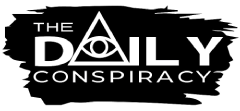Adolf Hitler, an unremarkable artist, emerged as the dictator of Germany and the architect of the Holocaust, raising questions for 20th-century historians about how he captured the German imagination and ascended to power. Despite lacking charisma and original ideas, Hitler’s German Workers’ Party gained dominance in post-World War I chaos due to his effective speaking talents and tactics, according to Karl Schleunes, author of “The Twisted Road to Auschwitz.” Hitler’s rise started in the German military, where exposure to right-wing perspectives on German history and socialism ignited his nationalist views.
Hitler’s early life in Austria offered no hints of his future trajectory. Rejected from art school in 1907, he lived in Vienna, making grand pronouncements about art while barely securing a future in the field. His World War I service provided direction, and working in military intelligence set him on a collision course with the German Workers’ Party. Hitler’s power as a speaker turned him from an informer to a party member, joining on September 12, 1919, and quickly rising through the ranks.
The chaos and resentment in post-World War I Germany provided fertile ground for Hitler’s growth. Germany’s shock after the war, conspiracy theories blaming Jewish people, and economic depression fueled Hitler’s appeal. Violence marked his early rise, culminating in the failed 1923 Beer Hall Putsch. Despite its failure, sympathy for Hitler’s aims grew, turning his trial into a platform for broadcasting his ideas and leading to the dictation of “Mein Kampf” during his prison term.
Hitler’s wider popularity emerged as he expanded his appeal from Munich to the rest of Germany, leveraging mass media to craft a domestic image. Losing the 1932 election, he gained support from influential industrial interests and was appointed chancellor in 1933. The Reichstag fire provided a pretext for Hitler to seize emergency powers, detain political enemies, and pass the Enabling Act, usurping democratic institutions. Hitler’s public relations strategies, portraying him as a cultured gentleman, dog lover, and beloved by children, softened his image, turning him into a celebrity and solidifying his dictatorship.

